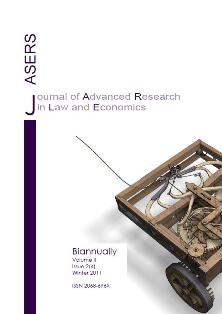WHY DO FRENCH CIVIL–LAW COUNTRIES HAVE HIGHER LEVELS OF FINANCIAL EFFICIENCY?
WHY DO FRENCH CIVIL–LAW COUNTRIES HAVE HIGHER LEVELS OF FINANCIAL EFFICIENCY?
Author(s): Simplice A. AsonguSubject(s): Economy
Published by: ASERS Publishing
Keywords: banking; allocation efficiency; exchange rate; inflation; economic integration;
Summary/Abstract: The dominance of English common–law countries in prospects for financial development in the legal–origins debate has been debunked by recent findings. Using exchange rate regimes and conomic/monetary integration oriented hypotheses, this paper proposes an ‘inflation uncertainty theory’ in providing theoretical justification and empirical validity as to why French civil–law countries have higher levels of financial allocation efficiency. Inflation uncertainty, typical of floating exchange rate regimes accounts for the allocation inefficiency of financial intermediary institutions in English common–law countries. As a policy implication, results support the benefits of fixed exchange rate regimes in financial intermediary allocation efficiency.
Journal: Journal of Advanced Research in Law and Economics (JARLE)
- Issue Year: II/2011
- Issue No: 04
- Page Range: 94-108
- Page Count: 15
- Language: English
- Content File-PDF

